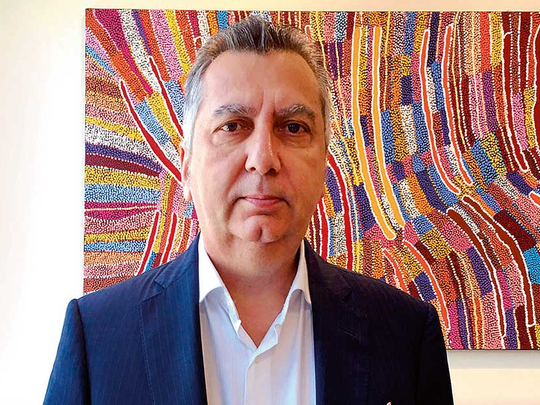
Dubai: With the rollout of mandatory insurance complete in Dubai, an insurance expert has cautioned residents, many of whom are insured for the first time, to guard against the misuse of their policies, lest they end up paying a heavy price for them.
Speaking to XPRESS, Robin Ali, head of practice at The Consilient Consultancy and former consultant with the Dubai Health Authority, said, “Many people who have insurance see it as free, especially where employers are paying for it. Eighty per cent of them tend to needlessly go to a specialist instead of a general physician when they fall sick. This is true even in cases where they have to cough up a co-payment. They don’t realise the impact until the policy comes up for renewal.”
Pointing out that abuse takes many forms, he said when an insurance company raises the premium if a policy is overused, the patient is quick to change the insurer, who in the absence of unified medical records has no access to his medical history or past policy utilisation. But as things get streamlined, this could become difficult.
Diagnostic tests
He said there could also be cases of an “alleged abuse” by a physician who could be ordering more diagnostic tests than necessary because of the revenue it brings in. But even in such instances, some doctors justify the number of tests they order citing a need to protect themselves against charges of medical negligence or malpractice which is a criminal offence in the UAE.
Ali said the tendency for physicians to prescribe a drug with a brand name, rather than its generic equivalent, also adversely impacts healthcare costs. “These brand name drugs are three to five times costlier than generic drugs and though an insurance company pays for it, the end-user doesn’t realise that it also impacts his pocket.” As the possible misuse of health insurance both by the patient and the doctor can lead to a vicious cycle of abuse, Ali said it is the patient who eventually suffers when he has to pay for a higher premium during the renewal of the policy.
There is also the danger of the insured maxing out the coverage limit. “Let’s say someone is over-utilising their insurance policy and at some point is in actual need of expensive treatment. Should the aggregate annual limit be reached, the insurance company won’t pay for the treatment. The hospital bill will keep going up and the patient will have to take care of the expense.”
To avoid such scenarios, Ali said some thumb rules should be followed while using insurance. To begin with, a sick patient’s first point of call should be a general physician. A specialist is to be consulted only if referred to by the general physician. Secondly, when a doctor hands out a prescription, the patient should ask for the cheaper generic version instead of going in for the brand name drug. When a test is recommended, a patient should satisfy himself, and if need be challenge the doctor, on the need for the test. Above all, a patient should take good preventive care by adopting a healthy lifestyle that includes a balanced diet, no smoking and adequate exercise and sleep.
Myth about deadline for dependents
Many residents who are individual sponsors in Dubai mistakenly believe they still have time to get the mandatory insurance for their dependents as penalties are not currently applicable.
However, while the penalties are not being imposed on individual sponsors who have failed to insure themselves or their dependents, Dubai Health Authority (DHA) has clarified that the deadline for the mandatory health insurance plan was June 30. While some whose dependents’ visas have come up for renewal are discovering this the hard way, there are many others who are still biding time.
According to the Dubai Health Insurance Law No 11 of 2013 that came into effect in January 2014, the legal liability for every sponsor is to provide an essential insurance package so that every employee or dependent receives adequate cover. The last phase of the mandatory insurance plan, which covered companies with 100 or less employees and other individual residents, including domestic workers and dependents of employees, ended June 30.
A week earlier, it was officially revealed that 30 to 40 per cent of those who fall under this category were covered.











